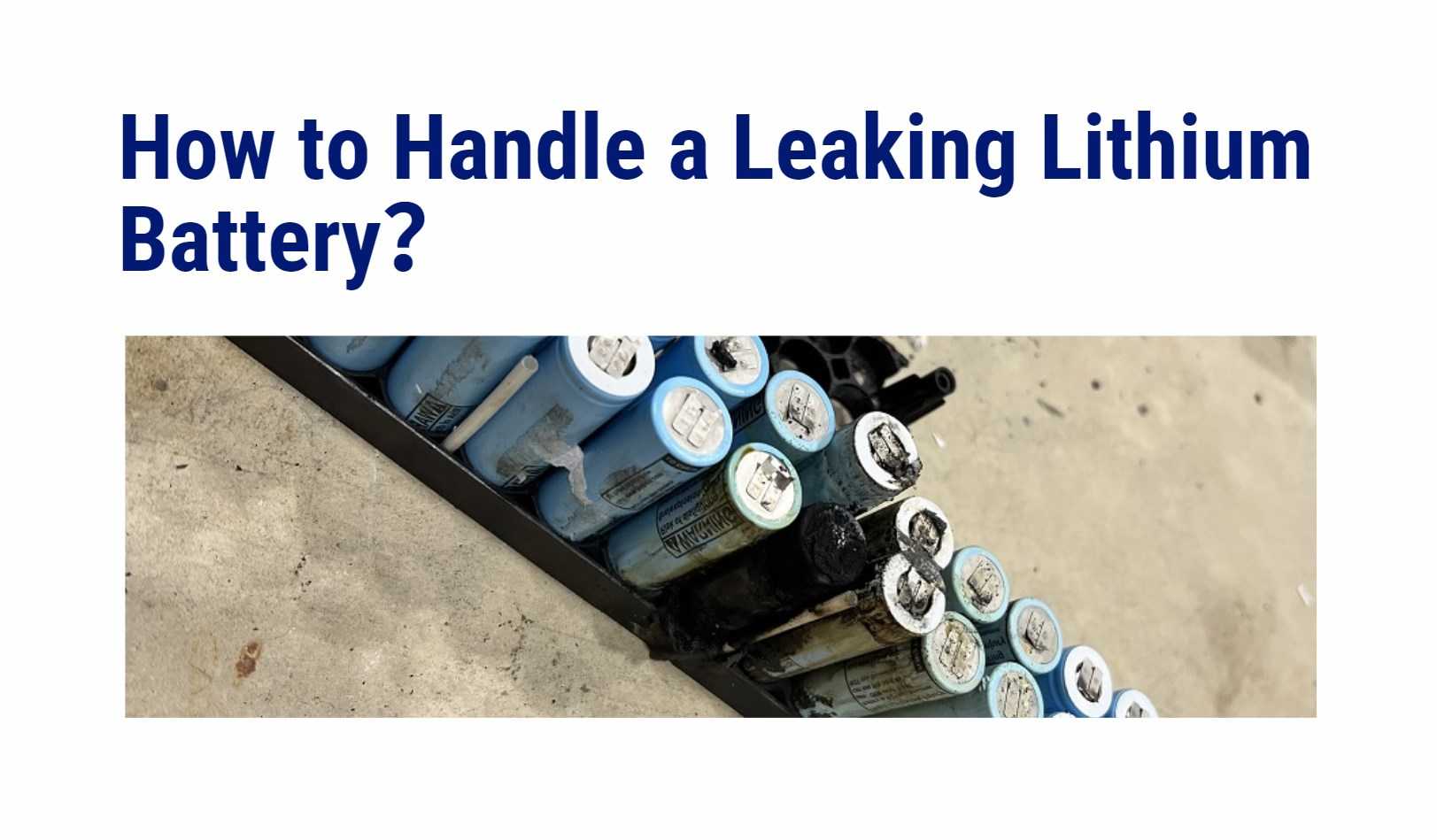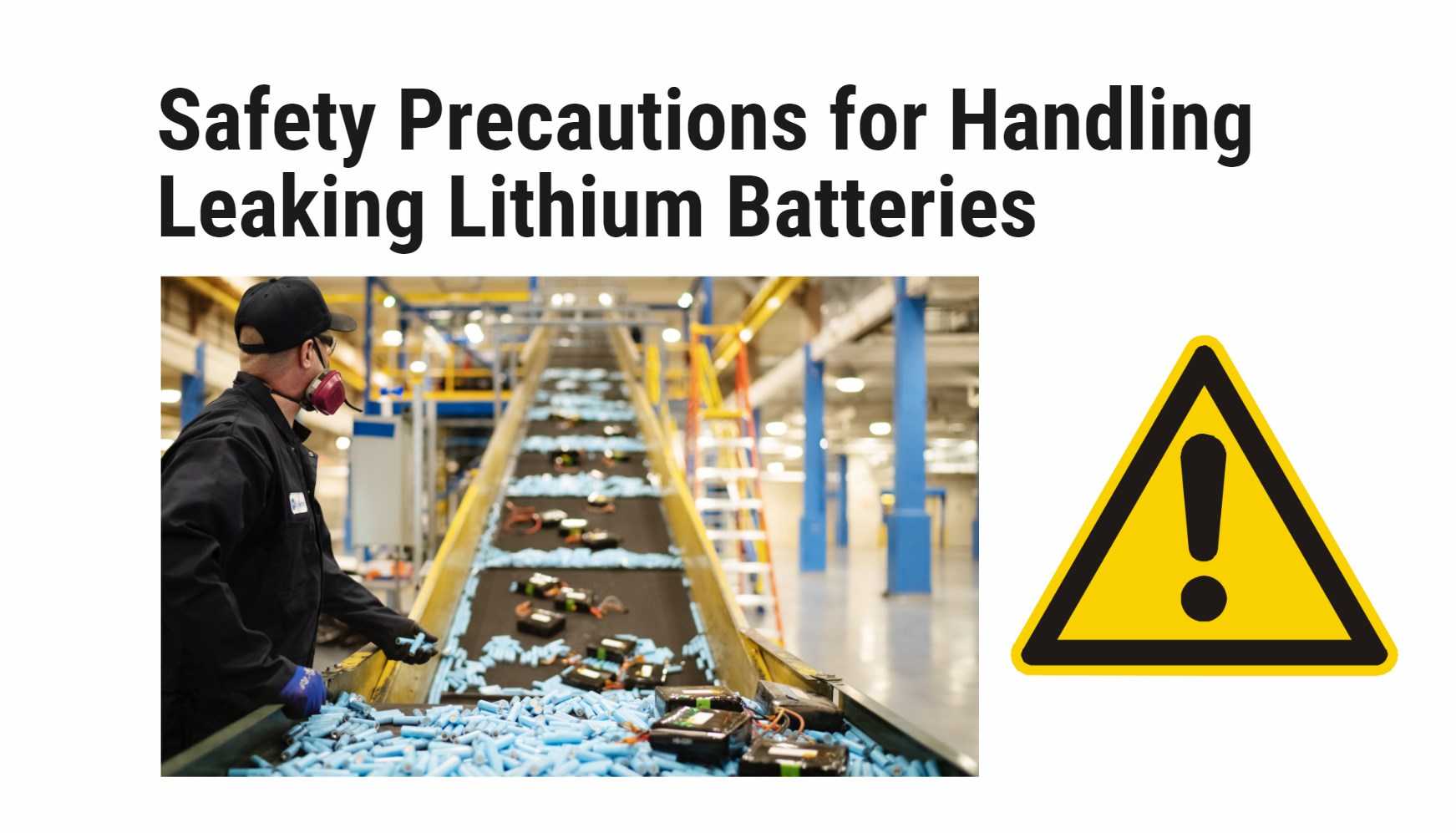In today’s technologically advanced world, lithium batteries have become indispensable power sources for numerous devices due to their efficiency and reliability. However, understanding the risks associated with these batteries, particularly when they leak, is crucial for safe usage and environmental protection. This guide, brought to you by Redway Battery, aims to equip you with essential knowledge on identifying, handling, and preventing leaks in lithium batteries, ensuring both safety and longevity.
Understanding the Risks of Leaking Lithium Batteries
Lithium batteries are renowned for their high energy density, making them ideal for portable electronic devices. Despite their benefits, these batteries can pose significant risks if mishandled or damaged, leading to leaks of hazardous chemicals.
Identifying Signs of a Leaking Lithium Battery
Detecting a leaking lithium battery early is paramount to preventing potential hazards. Here are key indicators to look out for:
- Visual Inspection: Check for corrosion around battery terminals or any bulging and deformation in the battery casing.
- Odor: A strong chemical smell emanating from the battery indicates a potential leak.
- Performance Changes: Any decline in battery performance or unexpected device malfunctions can also signal a leak.
Safety Precautions for Handling Leaking Lithium Batteries
Before Handling:
- Protective Gear: Wear gloves and safety goggles to shield yourself from chemical exposure.
- Ventilation: Work in a well-ventilated area to disperse toxic fumes effectively.
- Tools: Use non-metallic tools to handle the battery safely and prevent further damage.
Step-by-Step Handling Guide:
- Safety First: Equip yourself with protective gloves and eyewear before proceeding.
- Isolate: Turn off any connected devices and remove the leaking battery using non-conductive tools.
- Containment: Place the leaking battery in a sealed plastic bag or acid-resistant container to prevent exposure.
- Disposal: Contact local recycling centers or hazardous waste facilities for proper disposal guidelines.
Preventing Leaks in Lithium Batteries
Prevention is key to maintaining battery integrity and safety. Implement these practices to minimize the risk of leaks:
- Storage: Store batteries in cool, dry environments away from direct sunlight and extreme temperatures.
- Charging: Avoid overcharging batteries, and use chargers recommended by the manufacturer to prevent damage.
- Moisture Control: Keep devices dry to prevent corrosion, which can lead to leaks.
- Compatibility: Use chargers and accessories compatible with lithium batteries to avoid damage and potential leaks.
Conclusion
In conclusion, while lithium batteries offer unparalleled energy efficiency, understanding the risks associated with leaks is paramount for safe usage. By identifying signs early, implementing proper handling procedures, and adopting preventive measures, you can ensure the safety of both yourself and your environment. Stay informed, stay safe, and enjoy the benefits of lithium battery technology responsibly.





